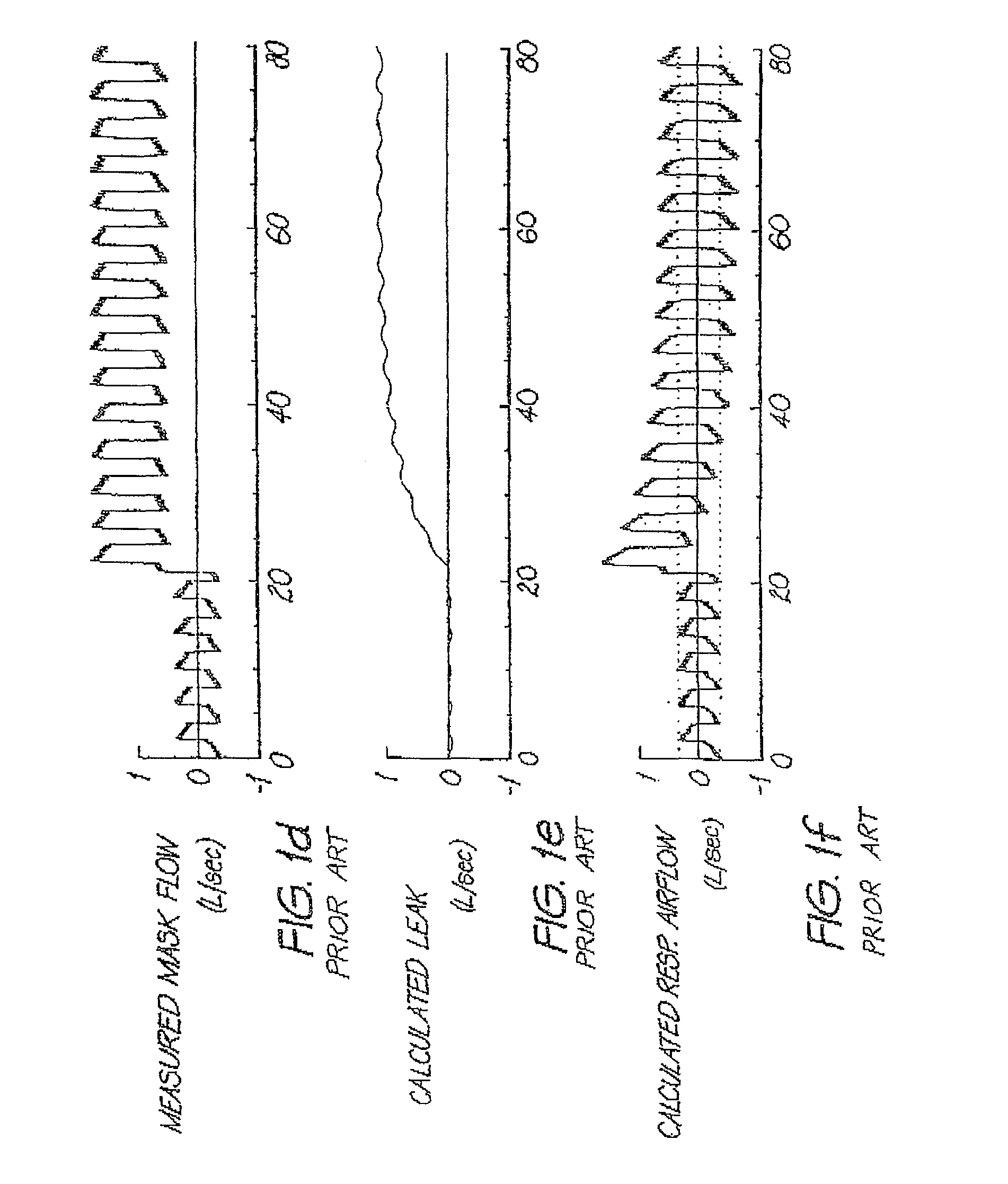Determination of leak during CPAP treatment
a technology of cpap and leakage air, which is applied in the direction of fluid tightness measurement, instruments, machines/engines, etc., can solve the problems of incorrect calculation of respiratory airflow, unavoidable leakage between the mask and the subject, and only correct known methods
- Summary
- Abstract
- Description
- Claims
- Application Information
AI Technical Summary
Benefits of technology
Problems solved by technology
Method used
Image
Examples
Embodiment Construction
[0020]The present invention is motivated by the desire to produce a continuously updated estimate of the leak model parameter which is very stable when the actual leak parameter is stable, but which degrades progressively and gracefully to a less stable, less accurate but faster-responding estimate when the actual leak parameter is changing rapidly. The leak model parameter in question is typically an orifice constant (equivalently a leak conductance), but need not be.
[0021]A continuously updated estimate of leak conductance (in particular, continuously updated during each breath) may be calculated by performing some kind of low-pass filtering operation, such as a 1st-order low pass filter or a moving average filter, typically with a fixed window length, on the non-vent flow (equal to the sum of the respiratory flow and the instantaneous leak flow) and on the square root of the mask pressure, producing a leak conductance estimate G1, as in Berthon-Jones. This method has the advantag...
PUM
 Login to View More
Login to View More Abstract
Description
Claims
Application Information
 Login to View More
Login to View More - R&D
- Intellectual Property
- Life Sciences
- Materials
- Tech Scout
- Unparalleled Data Quality
- Higher Quality Content
- 60% Fewer Hallucinations
Browse by: Latest US Patents, China's latest patents, Technical Efficacy Thesaurus, Application Domain, Technology Topic, Popular Technical Reports.
© 2025 PatSnap. All rights reserved.Legal|Privacy policy|Modern Slavery Act Transparency Statement|Sitemap|About US| Contact US: help@patsnap.com



